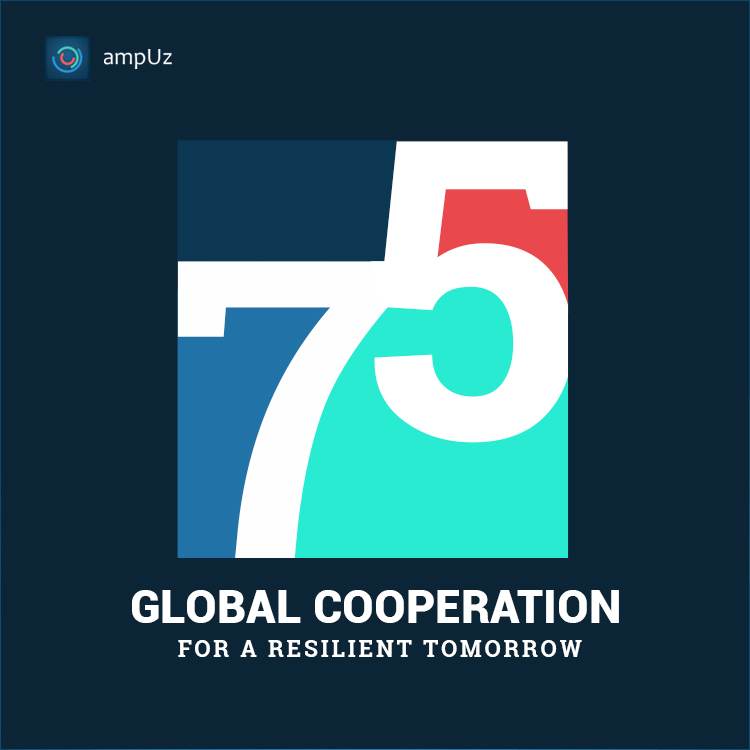
Global Cooperation for a Resilient Tomorrow
Leaders are faced with the challenges of fulfilling commitments towards the Sustainable Development Goals (SDG’s) compounded by the devastating effects of the Covid – 19 pandemic.
With the pandemic has come the worst economic recession since the Great Depression where it is expected that 71 million people will be pushed back into extreme poverty. At the same time, 132 million more will suffer from undernourishment.
Therefore the 75th session of the United Nations General Assembly (UNGA) comes at a sensitive time, needing to strike a balance between the proud reflection of its historical accomplishments but acknowledge the deep grief, pain, and setbacks that have come with the pandemic.
The 75th-anniversary is taking place during the UNGA, which usually takes place in the bustling streets of New York, where it is normal to see a traffic line – up of Heads of State leading to the UN headquarters.
This year to mark the 75th anniversary, there were three events under the theme of Uniting Business LIVE: the Private Sector Forum, the Global Impact Forum, and the SDG Business Forum. The UN Private Sector Forum, the first the day of the event, communicated a glaring message of global cooperation which was then reinforced throughout the next two days. At the forum, the Secretary-General tied the role of international collaboration with achievements of the past, and setbacks that could have been avoided during Covid – 19 if the same spirit was applied to the situation. The message of multilateralism was reiterated by other leaders at the session who highlighted the interconnectedness of the world and stated that solidarity would be required so that countries with limited resources are not left behind by stressing that if anyone is left behind, everyone is left behind.
The theme of multilateralism extended to the topic of climate change. The UN Global Compact, one of the hosts for the United LIVE event, shared the ‘The Business ambition 1.5’. An ambition, which aims to bring businesses together to limit global warming to 1.5 celsius. Corporate executives from across the world stressed that if implemented constructively, with the spirit of international cooperation, then only will the initiative prove its value. Companies that sign up commit to calibrate their decarbonization plans in two ways; the first, is to set a science-based target; and the second, to embrace a public goal to reach net-zero emissions no later than 2050. UN and climate leaders stressed sustainable 1.5 C compliant business models would be the ones that survive in the future.
Last but far from least was the issue of gender equality. During both the SDG Business Forum and Global Impact Forum, attendees were reminded of the disproportionately negative effect Covid – 19 has had on women world over. Under normal circumstances, women who face the unequal burden of unpaid childcare responsibilities are faced with the unique impacts of lockdowns, closed schools, and access to childcare. Furthermore, lockdowns have increased the risk of domestic violence for women at home and have limited access to family planning. To make matters worse, women tend to hold low-paid insecure jobs and female healthcare workers being sent to the frontline, further put women at an increased risk of health issues and economic loss. Thought leaders implore that these circumstances need to change moving forward, especially if we want to achieve the targets under Global Goal 5 on gender equality.
The United Live three-day event left us passionate about global cooperation, accountability, and the need to build back better. It was made clear that to reverse the adverse effects of the Covid – 19 pandemic, business leaders need to integrate climate ambition, diversity & inclusion, and basic decency into their business models. It is only those businesses that embrace this reality that will survive in the future.
